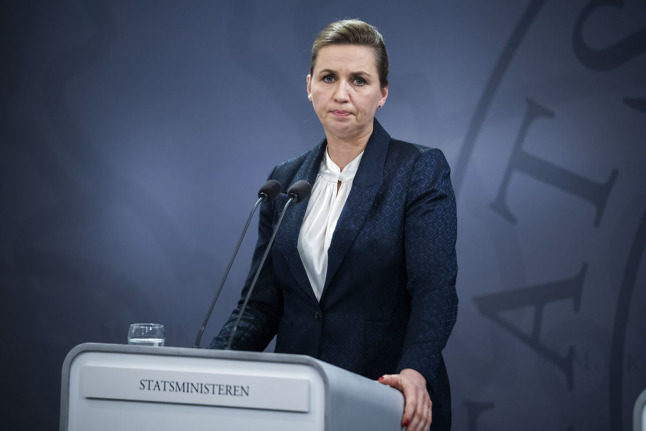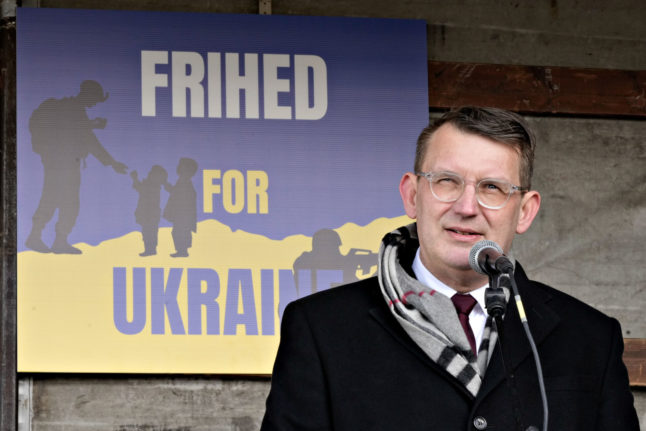“Today is a dark day for peace in the world. We are seeing a military attack on a peaceful, free and sovereign nation,” Frederiksen said.
“The attack is not just an attack on Ukraine. It is an attack on peace and stability. And it is an attack on an era which goes back to the Cold War. There is now war in Europe,” she said.
The Russian invasion of Ukraine, which began on Thursday morning, has been met with condemnation buy many – mostly western – countries, including Denmark.
Frederiksen said that the Danish government expects the situation created by the Russian attack to last for some time.
“We are heading into uncertain times,” she said.
“We expect there to be a longer-lasting international crisis. Potentially with large costs to Danish society,” she said.
READ ALSO: EXPLAINED: How Denmark could be impacted by Russia’s invasion of Ukraine
At the media briefing on Thursday, defence minister Morten Bødskov said there is not currently considered to be a threat to NATO, the military alliance of which Denmark is a member.
“It’s important for me to underline that we are not seeing any direct military threat against NATO. Nor are we seeing a direct military threat to Denmark,” Bødskov said.
“But Ukraine has been brutally assaulted. And the people of our eastern allies – not least in the Baltic countries – are worried. That is completely understandable,” he said.
The head of the Danish Armed Forces, Flemming Lentfer, said the military has increased its level of preparedness.
He also stated that Denmark has sent two fighter aircraft to Nato member country Poland.
Danish military presence in other Nato countries already includes four fighter jets in Lithuania, while 200 Danish troops will be posted to Estonia in March. The Nordic country also has four fighter aircraft stationed on its Baltic Sea island Bornholm.



 Please whitelist us to continue reading.
Please whitelist us to continue reading.
Member comments